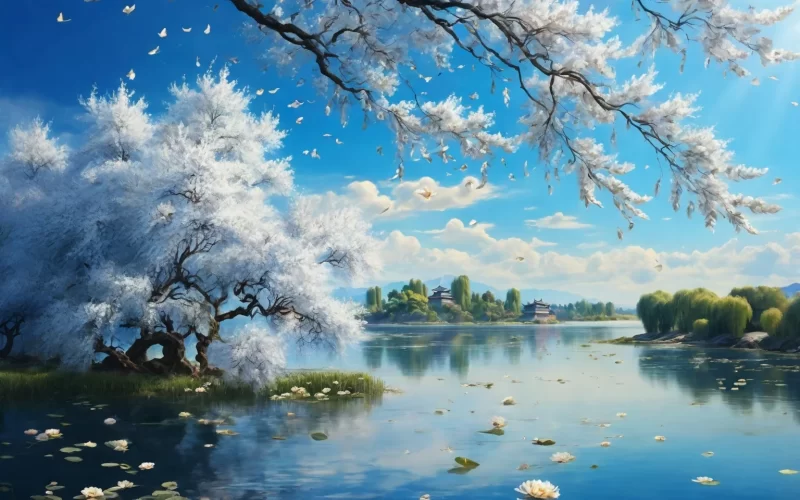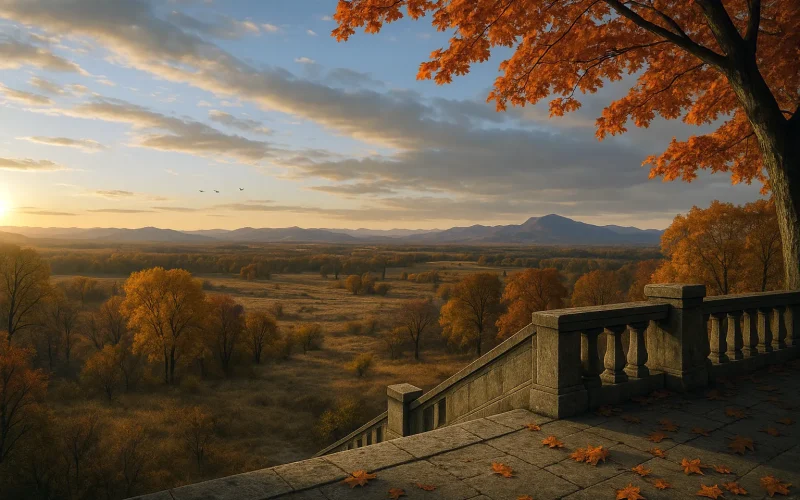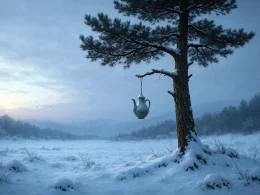On vernal day no flowers were in bloom, alas!
In second moon I'm glad to see the budding grass.
But white snow dislikes the late coming vernal breeze,
It plays the parting flowers flying through the trees.
Original Poem
「晚春」
韩愈
草树知春不久归,百般红紫斗芳菲。
杨花榆荚无才思,惟解漫天作雪飞。
Interpretation
This poem was composed during the Tang Dynasty, in the late spring season. Witnessing the blooming flowers and the fluttering catkins, the poet was moved to reflect on the scene. Instead of lamenting the fleeting nature of spring or the withering of flowers, the poet uses a light and humorous tone to depict a vibrant late spring scene, creating a unique and delightful atmosphere.
First Couplet: “草树知春不久归,百般红紫斗芳菲。”
Cǎo shù zhī chūn bù jiǔ guī bǎi bān hóng zǐ dòu fāng fēi.
The grass and trees seem to know that spring will soon depart, so they bloom in a riot of reds and purples, competing in beauty.
The poet personifies the plants, suggesting they are aware of spring's imminent end and thus strive to bloom in a final display of splendor. This lively and colorful scene highlights the vitality of life.
Second Couplet: “杨花榆荚无才思,惟解漫天作雪飞。”
Yáng huā yú jiá wú cái sī wéi jiě màn tiān zuò xuě fēi.
The catkins and elm seeds lack wit and charm; they only know how to scatter like snowflakes across the sky.
This couplet appears lighthearted but contains a clever contrast. While the first two lines depict the vibrant competition of flowers, the catkins and elm seeds, though lacking in beauty, create their own charm by "scattering like snowflakes." The poet playfully teases them but also appreciates their unique beauty.
Overall Appreciation
The poem, set against the backdrop of late spring, portrays a scene of blooming flowers and fluttering catkins, reflecting the poet's optimistic and open-hearted spirit. Instead of dwelling on the sadness of spring's end, the poet uses humor and wit to celebrate the beauty of late spring, particularly the charm of the catkins. The line "scattering like snowflakes across the sky" not only captures the ethereal beauty of the catkins but also subtly conveys the poet's appreciation and acceptance of the late spring scene, showcasing his carefree and open-minded attitude.
Writing Characteristics
- Clever Concept, Unique Perspective: The poet avoids the common themes of spring sorrow and instead focuses on the vibrant competition of flowers and the charm of catkins, presenting a distinctive view of late spring.
- Vivid Contrast, Full of Charm: The contrast between the blooming flowers and the catkins highlights the unique beauty of the latter, offering a profound message.
- Humorous Tone, Carefree Emotion: The poet's playful teasing of the catkins as "lacking wit" is both humorous and self-consoling, reflecting a relaxed and accepting attitude.
Insights
This poem reminds us that everything has its own unique value and beauty. Just as the catkins and elm seeds, though lacking the brilliance of flowers, possess their own charm as they scatter like snowflakes, life too has its moments of both splendor and subtlety. The poet's humorous depiction of late spring encourages us to embrace the passage of time with optimism and to cherish the beauty in every moment. It teaches us to appreciate not only the grand and vibrant aspects of life but also the quiet and understated ones, finding joy in the ordinary and the extraordinary alike.
Poem translator
Xu Yuan-chong (许渊冲)
About the poet
Han Yu (韩愈), 768 - 824 AD, was a native of Luoyang. Orphaned at the age of three, he was raised by his sister-in-law and was later admitted as a scholar. Han Yu's poems strive to be innovative and majestic, with a unique style that had a great influence on Song poetry writing.











